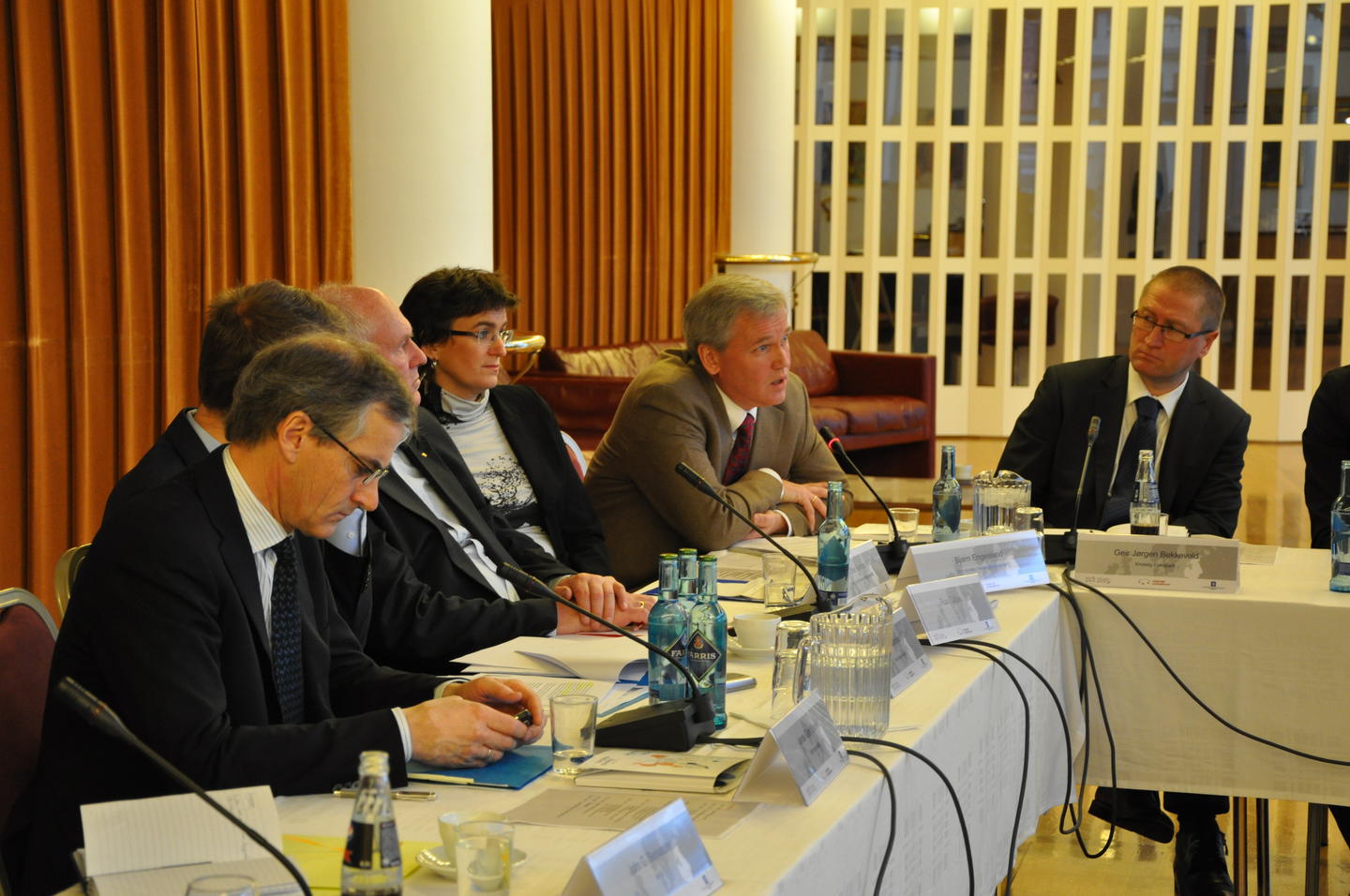The Norwegian Forum on Europe is chaired by the Norwegian Minister of Foreign Affairs, Jonas Gahr Støre, and has been held annually in Oslo since 2006 as an arena for dialogue and deliberation on European policy challenges and possibilities relevant for Norway. The topic for this year’s Norwegian forum on Europe was current issues related to the priority areas for the EEA and Norway Grants in the next funding period. Norway and the two other donors, Iceland and Liechtenstein, signed agreements with the EU on the EEA and Norway Grants for the 2009-2014 funding period on 28 July 2010. As the largest donor state, Norway will contribute €1.74 billion to the reduction of social and economic disparities in Europe in this time period. Environment and sustainable development, civil society and research are among the priority sectors. In addition, a new fund supporting decent work and tripartite dialogue will be established.
Keynote speakers in this year’s forum were the Norwegian Foreign Minister, Jonas Gahr Støre and representatives of the Confederation of Norwegian Enterprise, Innovation Norway, the Norwegian Confederation of Trade Unions (LO), the Norwegian Climate and Pollution Agency, the Norwegian Helsinki Committee and the Research Council of Norway. Following the opening keynotes, state secretary Erik Lahnstein led the panel discussion.
There was broad agreement among the round-table participants that the EEA and Norway Grants constitute important contributions to the reduction of economic and social disparities in the 15 beneficiary states in Central and Southern Europe. Funds are awarded to good projects that are considered important by the beneficiary states. The NGO sector was highlighted as an area where the funding has been particularly important. This sector is often not prioritised by the beneficiary states themselves, and many other international donors have withdrawn, making it increasingly difficult to secure funding.
Supporting decent work
An innovation of the EEA and Norway Grants 2009-2014 is the establishment of a fund for decent work and tripartite dialogue. This fund was given much attention particularly from the keynote speakers and round-table participants representing the trade unions and Norwegian enterprise. Especially in times of economic crisis, it is important to have measures that promote decent work and tripartite dialogue. Both the Norwegian Confederation of Trade Unions and the Confederation of Norwegian Enterprise stressed that Norwegian expertise in this field can be shared with the beneficiary states. “It is important. It is the right thing to do. And we would like to take part in it”, said John G. Bernander from the Norwegian Confederation of Enterprise.
A foreign policy tool
Fredrik Sejerstad, who chairs the committee that is currently studying Norway’s relations with the EU, was satisfied with how the debate about the EEA and Norway Grants had developed. A debate about the grant schemes often turns into a discussion on the size of the financial support. At the Norwegian Forum on Europe, it turned into a debate about how the money should be spent and how Norwegian institutions could get involved. In Sejerstad’s opinion, the EEA and Norway Grants are more than just a contribution to Europe; they have also become a foreign policy tool.
Photo: Anders Nielsen, Norwegian Helsinki Committee.
